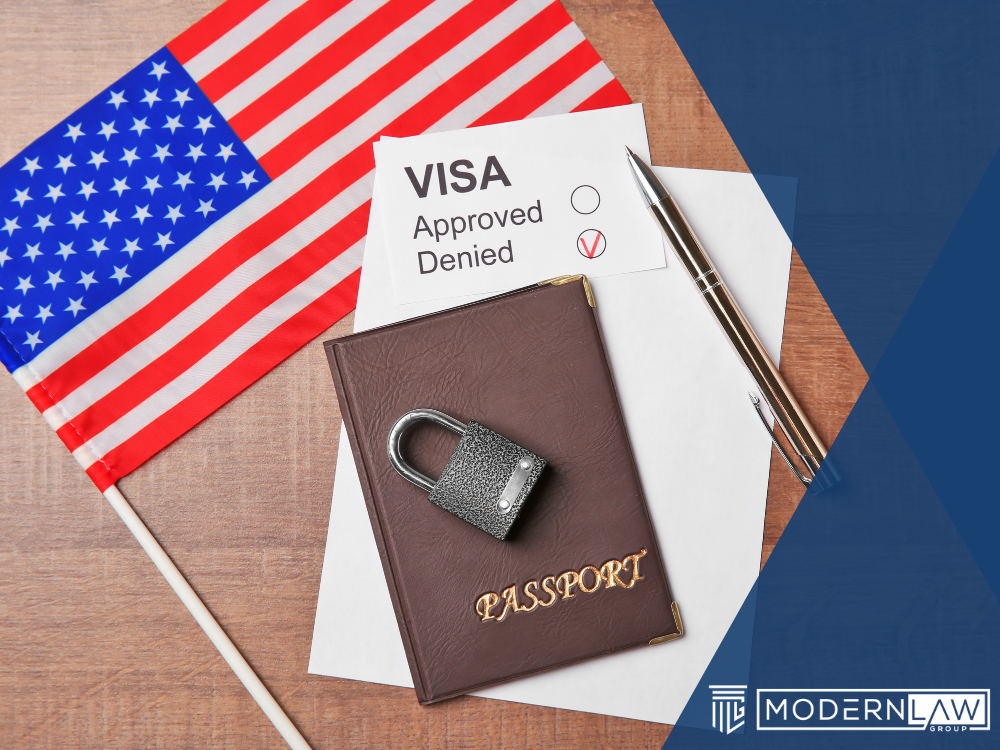Immigration Appeals
Русский перевод
Traducción al Español

Immigration officials aren’t perfect – and sometimes they make unfavorable decisions. Fortunately, in some cases, people on the receiving end of an unfavorable decision are allowed to appeal. Immigration appeals are essentially a way to ask a higher authority to review a case and determine whether the unfavorable action was appropriate. In U.S. immigration, there are a couple of different ways a person can appeal an unfavorable decision. This guide explains.
Immigration Appeals: The BasicsImmigration appeals aren’t available in every case. However, if you’ve been denied some type of immigration benefit, such as asylum, withholding of removal, denial of parole, of something similar, you may be entitled to file an appeal.
Generally, it’s a good idea to have an immigration appeals attorney fill out and file the appropriate paperwork for you; immigration appeals are not like the criminal court appeals you see on television. In fact, immigration appeals can be very difficult to manage. For this reason, many people choose to hire a lawyer to work through their cases.
FAQ on Immigration AppealsIf you receive an unfavorable decision in your case, it’s natural to have questions. These are some of the most common (along with their answers).
Can I Appeal Any Bad USCIS Decision?If you don’t like the decision USCIS made in your case, you may be eligible to appeal it or file a motion. An appeal asks the next-higher authority to review the case and render a new judgement, while a motion asks the same decision-maker to have another look at your case. Not all cases are eligible for appeals or motions; the document containing your decision will tell you whether you can appeal. Not all cases are eligible for an appeal or motion, ask a Texas immigration attorney if your case is eligible.
Is it Easy to File an Immigration Appeal?Immigration appeals aren’t like the court cases you see on TV. In fact, they’re mostly administrative – they’re often all on paper. It’s not easy to file an immigration appeal, which means you may need to work with an attorney.
How Long Do I Have to File an Immigration Appeal?In most cases, you’re required to file an immigration appeal within 30 days of receiving an unfavorable decision. If you wait longer, you may completely waive your right to appeal. There are some exceptions, though, and your attorney can help you determine whether you qualify.
Who Reviews Immigration Appeals?When you file an immigration appeal, the original judge or official who made the decision won’t review it again. Your case goes to the next-higher decision-making authority. Only two agencies can review immigration appeals: The Administrative Appeals Office (often referred to as AAO) of the United States Citizenship and Immigration Offices and the Board of Immigration Appeals (commonly called the BIA) of the U.S. Department of Justice. Each of these agencies has authority to review appeals under different circumstances, which the following sections explain.
Using the Administrative Appeals OfficeThe AAO only hears U.S. Citizenship and Immigration Services cases – not cases that involve an immigration judge. That doesn’t mean that every case is eligible for appeal, though. The AAO only hears cases that involve:
- Some adjustment of status applications, such as those related to T and U visas
- Applications for temporary protected status, or TPS, which allows a person to live and work in the U.S. for a limited period of time (it’s similar to asylum or refugee status, but unlike those humanitarian programs, TPS has a definite end date)
- Applications for permission to come back to the United States after deportation
- Employment-based visas, which may fall into immigrant or nonimmigrant categories
- Fiancé petitions that enable couples to marry inside the United States
- Investment-based visas that require an immigrant investor to put money into a U.S. company and create jobs for Americans
- Petitions that involve juveniles, orphans, religious workers and special immigrants
- Petitions that involve temporary labor, training or services
The Administrative Appeals Office only conducts administrative reviews of appeals to make sure that judges are interpreting immigration law and policy consistently. It also considers motions to reopen cases and to reconsider cases.
Although this branch of USCIS has appellate jurisdiction over about 50 types of immigration cases, it does not deal with appeals that have to do with rejected, abandoned or withdrawn applications and petitions, or motions to reopen a case or reconsider a case that were denied by a USCIS field office (except in limited circumstances).
 Motions to Reopen and Reconsider Through the AAO
Motions to Reopen and Reconsider Through the AAOMotions to reopen a case or to reconsider a case are two ways a person can ask for a different decision after an appeal. These types of cases don’t go to an appellate judge; they go to the same authority that issued the latest decision. An attorney can file one or the other (or both together), bearing in mind that:
- A motion to reopen can only be used if there are new facts in a case. You can’t simply resubmit old facts – you must provide new evidence.
- A motion to reconsider can be used if you and your attorney believe that the AAO based a previous decision on “an incorrect application of law or policy” at the time the judge made the decision.
The Board of Immigration Appeals hears different types of cases than the AAO does. It’s where you file immigration appeals for cases that involve judges, as well as some cases that involve decisions made by officials from the Department of Homeland Security. The BIA does not hear cases that involve USCIS decisions; those appeals have to go through the AAO. (Don’t worry – your immigration attorney will know what authority to appeal to in your case.)
You may be able to file an appeal to the BIA if your case involves:
- Asylum
- Withholding of removal (deportation)
- Waivers of inadmissibility, but only after Department of Homeland Security decisions
- Removal orders
- Some administrative fines and penalties levied by the DHS
- Motions to reopen and reconsider prior decisions
- Exclusion of aliens who are applying for admission to the U.S.
- Family-based immigration cases after DHS decisions
- Denial of bond or parole
If you receive an unfavorable decision from USCIS, DHS or an immigration judge, you may be eligible to file an appeal. Call our office today to schedule a consultation with an experienced professional who can help you move forward.
 USA Visa Lawyer Modern Law Group, P.C. Home
USA Visa Lawyer Modern Law Group, P.C. Home






 Deron E. Smallcomb If you have a fiancé or spouse in another country, a parent that you'd like to bring to the USA...
Deron E. Smallcomb If you have a fiancé or spouse in another country, a parent that you'd like to bring to the USA...


